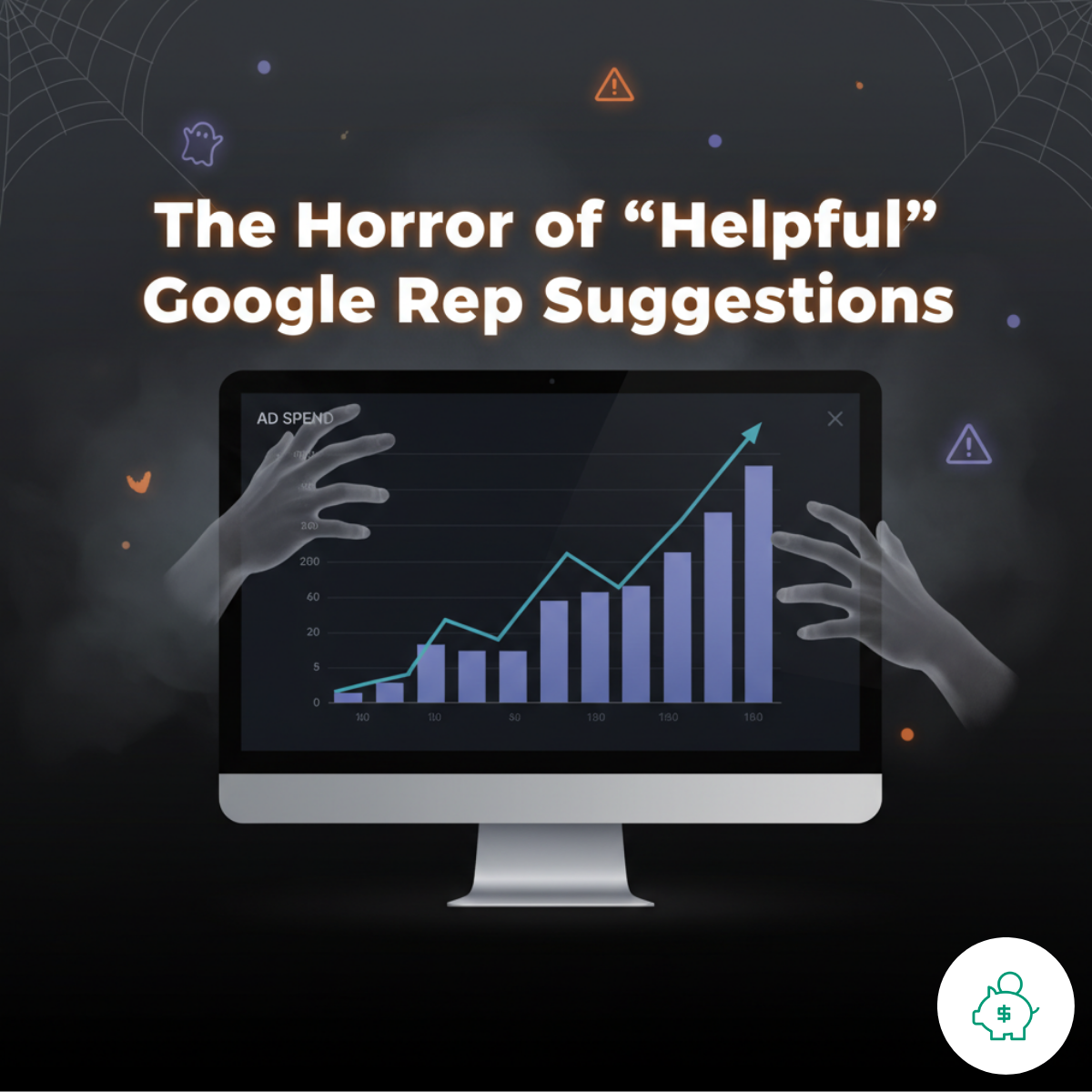The Horror of "Helpful" Google Rep Suggestions
But here's the truth: Google reps aren't measured by how much money you make. They are measured by how many features you adopt.
The Horror of "Helpful" Google Rep Suggestions
Every October, it feels right to talk about things that go bump in the night. For business owners running their own Google Ads, one of the scariest knock-on-the-door moments is when a Google rep calls or emails with "helpful" suggestions. They sound friendly. They might even present themselves as your personal account advisor. But here's the truth: Google reps aren't measured by how much money you make. They are measured by how many features you adopt.
Why Google Reps Reach Out
For small business owners and DIY marketers, it can feel reassuring to have someone from Google looking at your account. They'll mention "new opportunities," "account health checks", or "making your campaigns work harder." Their suggestions almost always push features that benefit Google first. That doesn't make reps the villian of the story, but it does mean you need to be cautious about what you agree to.
The Scariest Suggestions to Watch Out For
Here are a few of the most common recommendations that can end up costing you:
1. Auto-Applied Recommendations:
- Sounds helpful: "Save time by letting Google make changes automatically."
- Reality: You may wake up to a campaign that's spending differently than you'd planned.
2. Switching to Broad Match Everything
- Sounds helpful: "Get more reach by using broad match."
- Reality: Broad match often brings in irrelevant clicks that never convert.
3. "Smart" Campaigns for Everyone
- Sounds helpful: "Simplify your setup with a Smart campaign."
- Reality: These campaigns take away visibility and control, which makes it harder to know what's working.
4. Raise Budgets Without Strategy
- Sounds helpful: "You'll capture more clicks/conversions if you just spend more."
- Reality: Without fixing the underlying targeting or strategy, you're just throwing money into the same problem.
5. Over-Reliance on Performance Max
- Sounds helpful: "One campaign, every placement, easy results."
- Reality: Performance Max can be powerful but it's also a black box. You need to know how to monitor and guide it, not just hand over the keys.
What Happens If You Say Yes
When DIY business owners accept these recommendations without question, the results usually aren't pretty:
- Higher costs with no improvement in conversions.
- Ads showing up in irrelevant places (like kids' games or foreign countries).
- Less visibility into what's working, making it harder to optimize.
It's not about rejecting every suggestion outright. It's about knowing which ones actually help your business and which ones just pad Google's bottom line.
How to Protect Yourself
A few practical ways to keep your account safe:
- Review every recommendation manually. Don't turn on auto-applies.
- Stay focused on the metrics that matter. Clicks and impressions don't pay the bills, conversions and ROI do.
- Keep learning. If you're not sure whether a setting is good for your business, research before accepting.
- Use tools to monitor changes. Automations and audits can help you catch unhelpful adjustments before they cause damage.
- Partner with companies that look out for your best interest and aren't pushing their own agenda.
Final Thoughts
Google Ads can absolutely work for DIY business owners. But don't get spooked into saying "yes" to every rep suggestion that comes your way. With a little awareness, you can avoid the tricks and keep your campaigns focused on results that matter.
This October, we'll be sharing more "scary stories" from the world of digital ads from wasted budgets to ghost clicks along with practical advice to help you stay in control.



-Cover.jpg)
